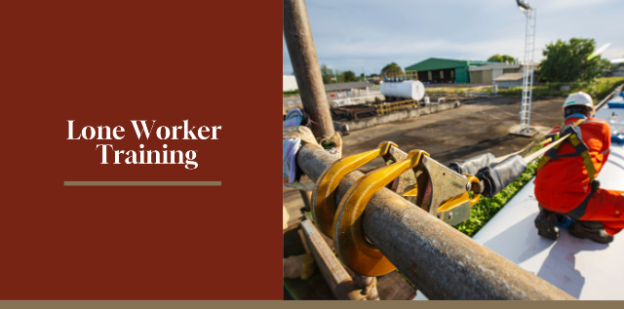Lone Worker Training is a comprehensive online course designed to provide individuals with the knowledge and skills necessary to work safely and effectively when operating alone in various professional settings. This course is particularly beneficial for individuals who work in remote locations, in isolated environments, or outside regular working hours. Participants will learn how to assess risks, implement safety measures, and adopt best practices to protect their well-being and enhance their productivity as lone workers.
What you’ll learn:
Module 1: Introduction to Lone Working
– Understanding the concept of lone working
– Recognizing the unique risks and challenges faced by lone workers
– Legal and organizational requirements for lone worker safety
Module 2: Risk Assessment for Lone Workers
– Conducting comprehensive risk assessments
– Identifying potential hazards and threats
– Implementing preventive measures to mitigate risks
Module 3: Personal Safety Strategies
– Personal safety awareness and situational assessment
– Effective communication methods for lone workers
– Implementing personal safety devices and technologies
Module 4: Health and Well-being of Lone Workers
– Managing stress and isolation as a lone worker
– Promoting mental and emotional well-being
– Recognizing and responding to physical health concerns
Module 5: Emergency Preparedness and Response
– Creating emergency response plans for lone working scenarios
– Dealing with medical emergencies and injuries
– Ensuring effective communication during emergencies
Module 6: Security and Conflict Management
– Identifying potential security risks and threats
– Conflict resolution techniques for lone workers
– Dealing with aggressive or hostile individuals
Module 7: Working with Equipment and Machinery
– Safe operation of equipment and machinery when working alone
– Implementing lockout/tagout procedures
– Proper handling and maintenance of tools and equipment
Module 8: Time and Task Management
– Effective time management strategies for lone workers
– Prioritizing tasks and setting realistic goals
– Avoiding distractions and maintaining focus
Module 9: Lone Worker Policies and Procedures
– Developing and implementing lone worker policies
– Establishing communication protocols and check-in systems
– Monitoring and reviewing lone worker safety measures
Career Path:
Upon completing the Lone Worker Training course, individuals can pursue various career paths focused on lone worker safety and well-being. Some potential roles include:
1. Lone Worker Safety Officer
2. Health and Safety Manager
3. Occupational Health and Safety Specialist
4. Security Officer/Manager
5. Emergency Response Coordinator
6. Field Service Technician
7. Facility Manager
8. Risk Management Consultant

